The Ron Harden Visiting Professorship in Medical Education at IMU is established with the primary purpose of appointing from among suitable persons in the medical and health fraternity to conduct teaching and research in the area of medical education. Such persons will also assist and provide advice on the development of ICE.
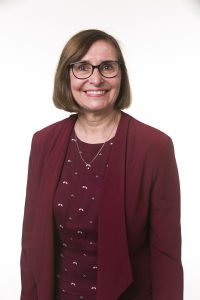 Emeritus Professor Dame Jane Dacre
Emeritus Professor Dame Jane Dacre
BSc, MBBS, MD, FRCP, FHEA
Emeritus Professor of Medical Education, UCL
Notable Roles: President, Medical Protection Society; Chair, UK Health Honours Committee; Specialist Advisor to Parliament.
Dame Jane Dacre is a distinguished leader in medicine, renowned for her contributions to medical education, healthcare leadership, and gender equality. She has led significant initiatives such as the Gender Pay Gap in Medicine review and the Commission on Pharmacy Professional Leadership. Dame Jane is also the host of the "Medical Women Talking" podcast and an esteemed speaker on topics related to healthcare and inclusivity.
Date: 26 October 2024 - 23 November 2024
Highlighted Achievements:
- DBE Queen’s Birthday Honours (2018)
- Chair of the Gender Pay Gap in Medicine Review Implementation Advisory Board
- Lead, Commission on Pharmacy Professional Leadership (2023)
Highlight of RHVP 2024:
OBA Question Writing Workshop
Tuesday, 29 October 2024 (9.00am - 12.30pm)
ICE Training Centre (2.09), Level 2, IMU BJ Campus
The workshop is aimed at training faculty in constructing high quality OBAs to assess higher order thinking skills that measure application, analysis, and synthesis, not just recall. The participants will learn to design a clear, focused stem with effective distractors. They will be able to create questions that meet all the quality indicators.
Academic Plenary: Influencing Policy Through Soft Power
Wednesday, 30 October 2024 (12.30pm - 1.30 pm)
Multi-Purpose Hall 1 (2.07.01), Level 2, IMU BJ Campus
This academic plenary will explore the concept of soft power and its critical role in influencing public policy. The session will cover the definition of soft power, its distinction from hard power, and its historical significance. The audience will gain insights about the mechanisms and tools of soft power, including the role of culture, media, and education. The plenary will highlight how soft power has been effectively used to achieve policy goals. Additionally, the plenary will address the challenges and ethical considerations of using soft power, emphasizing the importance of transparency and integrity and practical strategies for leveraging soft power in various sectors such as healthcare and education.
Workshop: Standard Setting
Tuesday, 5 November 2024 (8.30am - 12.30 pm)
ICE Training Centre (2.09), Level 2, IMU BJ Campus
The Standard Setting for Written Tests workshop offers an in-depth exploration of various approaches to standard setting for written tests. Participants will examine methods such as the Ebel and Angoff methods, evaluating the strengths and weaknesses of each. The workshop emphasizes how to effectively apply these methods to establish defensible cut scores, ensuring fair and valid assessments. By discussing the relative merits of each approach, participants will gain the insights needed to make informed decisions on the best practices for their specific contexts, ultimately enhancing the integrity and reliability of their testing processes.
Leadership Course for Educators
6,7,8 & 11 November 2024
ICE Training Centre (2.09), Level 2, IMU BJ Campus
This course covers a general introduction to leadership including leadership theories, personality types, and values. A selection of local HPE leaders will be invited to speak to the participants about their leadership journey. Action Learning sets will be conducted on a leadership issue that the participants bring, and have a session called leadership in action, where participants undertake a leadership exercise and give and receive feedback. There will also be a group task on "Digital Transformation" and how they would use their knowledge of leadership to bring change. On the last day, all participants will present their leadership journey, reflecting on what they have learned.
OUTCOMES:
- Discuss personal leadership characteristics and styles.
- Develop and share solutions to real-life challenges through participation in action learning sets.
- Reflect on your own leadership journey to identify areas for personal leadership growth.
Academic Plenary: Inclusivity in Leadership: Addressing Gender Gaps in Health Professions
Tuesday, 12 November 2024 (12.30pm - 1.30pm)
Multi-Purpose Hall 1 (2.07.01), Level 2, IMU BJ Campus
This academic plenary will explore the significant gender gaps in leadership within health professions. The session will provide an overview of current disparities, analysing recent trends and the systemic, cultural, and personal barriers that hinder advancement in healthcare leadership. Discussions will highlight the real-world impact of these gaps on healthcare outcomes and organizational effectiveness, supported by personal stories and statistical insights. The audience will gain practical strategies to promote gender equality, including best practices and policies, the importance of mentorship and professional networks, and successful case studies of initiatives that have reduced gender disparities.
RHVP 2024: Navigating Your Medical Journey: Insights and Inspirations
Wednesday, 13 November 2024 (10.00am - 1.00 pm)
JBLT, Ground Floor, Seremban Campus
This inspirational career talk is designed for junior doctors and graduating students to equip them with essential tools for navigating the dynamic field of medicine.
Objective:
To empower junior doctors and graduating students with the mindset and practical strategies necessary to navigate the evolving landscape of medicine
Participants will explore:
- Understanding Change: Recognizing the unprecedented shifts in healthcare delivery, technology, and socio-economic factors that are shaping the medical profession.
- Embracing Uncertainty: Viewing uncertainty as an opportunity for innovation and professional growth rather than a barrier.
- Building Resilience: Learning the importance of resilience in overcoming challenges, including practical strategies to cultivate inner strength and adaptability.
- Career Development Strategies: Discussing mentorship and further education as key components for career advancement
- Fostering a Growth Mindset: Encouraging a lifelong learning attitude to continuously evolve in response to the changing healthcare landscape.
Learning Outcomes:
At the end of the session, participants will be able to:
- Identify the key challenges in the rapidly evolving healthcare landscape.
- View uncertainty as a catalyst for innovation and personal growth.
- Cultivate a lifelong learning mindset, encouraging continuous adaptation and skill development in their professional journey.
- Gain practical strategies in pursuing their careers.
Workshop: Assessment Blueprint
Monday, 18 November 2024 (9.00am - 12.30pm)
ICE Training Centre (2.09), Level 2, IMU BJ Campus
An assessment blueprint is a detailed plan outlining the specific assessments for a course or programme. It can be a a useful roadmap for assessment alignment with learning outcomes at the programme, module, or test/exam level. This workshop aims to equip faculty with the skills to create effective assessment blueprints at the test/exam level that align with learning outcomes and ensure fair and valid assessments. Participants will explore the components of assessment blueprints, learn how to design effective assessment items and address issues such as bias and fairness.
Workshop: OSCE Skill Enhancement: Advance Workshop on Effective Writing and Evaluation
Tuesday, 19 November 2024 (8.45am - 3.30pm)
ICE Training Centre (2.09), Level 2, IMU BJ Campus
This intermediate to advanced level workshop is designed to enhance participants' skills in creating and refining OSCE stations and evaluating candidate performance with precision. Building on foundational knowledge, the workshop provides a deeper exploration of OSCE station development and introduces advanced techniques for performance assessment.
Other activities:
IMU – MBBS Curriculum Review, Advisory Clinic session with Schools and Centres
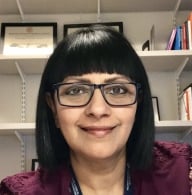
Associate Professor Subha Ramani
MBBS, MMEd, MPH, PhD, FAMEE
Harvard Medical School, Boston, Massachusetts
- President of the Association for Medical Education in Europe (AMEE)
- Associate Professor of Medicine Harvard Medical School
- Adjunct Professor, Massachusetts General Hospital Institute for Health Professions
- Honorary Professor of Medical Education, University of Manchester, UK
- Visiting Professor of Medical Education, University of Indonesia
- Ronald Harden Visiting Professor, International Medical University, Malaysia
The highlight of RHVP 2022:
Visit Date - 11 October - 4 November 2022
Academic Plenary: Professional Growth Through Mentoring: Fact or Fiction?
Many professionals who have successful careers often share that they would not have gotten there without the advice and guidance of other wiser men and women. These people act as their mentors, supporting them in developing new skills, navigating political environments, challenging ideas, and expanding network. Nevertheless, mentoring does not always guarantee success as it depends on the mentor, the mentee as well as their mentoring relationship. In this plenary, the benefits of mentoring, the essential elements and other influencing factors (eg. Gender, organizational context) for its success are discussed.
RHVP 2022: Academic Plenary Flyer
IMEC 2022- Pre Conference Workshop 2
Deconstructing the Journey of Successful Mentoring Relationships: A Workshop for Mentors to Develop Effective Mentoring Relationships Targeting Mentees’ Professional Growth
Many successful professionals can point to inspiring mentors who guided and influenced them along various stages of their careers. Whereas traditional mentoring models emphasise dyadic long-term relationships between junior mentees and senior mentors, newer models are more flexible and include single focussed interactions, short-term relationships, peer and group mentoring, and mentor networks that offer varying perspectives on a single challenge or goal. Regardless of format, mentoring relationships should provide a safe and supportive environment for mentees to reflect on their strengths and limitations and formulate professional development plans, facilitated by mentors. However, mentors rarely receive training on the mentoring process, they are often ill-equipped to face challenges when taking on major mentoring responsibilities.
Using brief didactics, brainstorming, facilitated large group discussions, personal reflections, small group exercises and rotating stations, this interactive workshop will discuss core mentoring skills and theoretical underpinnings, designing mentoring programs, mentoring challenges, etiquette and ethics of mentoring relationships. The opportunities to interact will take advantage of the experiences of senior faculty in the group and the diverse perspectives of an international audience.
Workshop on Scholarship in Health Professions Education (CPD)
The pursuit of scholarly activities such as research, presentation and publication in health professions education facilitates the personal and professional growth as educators. We will discuss Boyer’s model of scholarship, Glassick’s standards for effective scholarship and how educators can craft a career as scholars who contribute meaningfully to the field. Most pertinent among the activities are communicating research results and findings, reporting implementation and evaluation of innovations and synthesizing the literature on a given topic through effective presentations and manuscript writing. The oral and written forms of scholarly presentations, including publications, require a clear, systematic, purposeful and rigorous approach to have a significant impact on other educators or the field. Therefore, the workshop is proposed to engage health professions educators in enhancing their presentation style and writing for scholarship skills. Finally, most scholars write in groups and a discussion of collaborative writing would be essential for scholars today where collaborations cross geographical boundaries.
RHVP 2022: Scholarship in Health Professions Education Flyer
CPD POINTS
- MMA & MDC - A2: Workshops (half Day) CPDE39043 (4 CPD Points)
- MPS - A4 (2022/0462) (3 CPD Points)
- MyCPD (Dietician, Nutritionist, Pharmacist) - A3- Workshops (half Day) (4 CPD Points)
Workshop: Bedside Teaching: Devising a Foolproof Plan for Success (CPD)
Bedside teaching is seen as one of the most important modalities in teaching a variety of clinical skills important for the medical profession, but its effective use is declining as recent clinical teaching and learning is shifting away from the bedside. However, the value of bedside teaching is very much important as it has been shown to improve students' diagnostic skills, provide students with authentic cases and most importantly to build therapeutic relationships with patients. As bedside teaching is still relevant in HPE, a strategy needs to be devised to ensure the relevancy and effectiveness of bedside teaching. There has been recent work that emphasizes patient engagement in bedside teaching. In addition to discussing skills for efficient and effective bedside teaching, we will also discuss how to engage patients in these encounters in the Malaysian context. Faculty development in this area is useful.
RHVP 2022: Bedside Teaching: Devising a Foolproof Plan
CPD POINTS
- MMA & MDC - A2: Workshops (half Day) CPDE39047 (4 CPD Points)
- MPS - A4 (2022/0463) (3 CPD Points)
- MyCPD (Dietician, Nutritionist, Pharmacist) - A3- Workshops (half Day) (4 CPD Points)
------------------------------------------------------------------------------------------------------------------
Workshop: Making Workplace-Based Learning Effective
Workplace-based learning (WBL) is well recognised as one of the most effective approaches to translating theory into practice. Numerous factors can enhance the efficacy of workplace-based learning. This workshop aims to discuss the principles of WBL and various strategies to enhance students’ development through WBL, which is applicable to both undergraduate and postgraduate training. The workshop will also discuss the developmental approach to assessment such as roles of direct observation, feedback and practice improvement through coaching, and programmatic assessment to promote assessment for learning.
Workshop on Feedback and Coaching: A Bidirectional Approach
The primary goal of performance assessment, in clinical and non-clinical environments, is to calibrate the gaps between expected and current performance and help the learner narrow these gaps. This goal fosters the professional development and growth of learners. Self-reflection and feedback are integral to this process, however, feedback conversations may not always be effective. Recent research defines feedback as a dynamic, bidirectional process with a focus on growth. The effectiveness depends not only on how the feedback is given but also on how it is received and accepted. This can be challenging for the feedback giver and recipient. The proposed workshop aims to address the concerns and share experiences based on the AMEE guide “Meaningful feedback through a sociocultural lens” by Prof Subha Ramani.
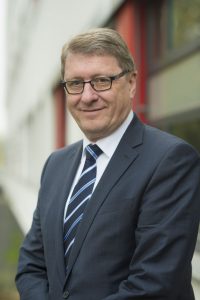 Professor Cees van der Vleuten
Professor Cees van der Vleuten
Professor of Education at Maastricht University, The Netherlands
Department of Educational Development and Research in the Faculty of Health, Medicine and Life Sciences.
Director of the School of Health Professions Education
www.ceesvandervleuten.com
Highlight of RHVP 2019:
Visit Date - 22 April – 17 May 2019
Academic Plenary: A Vision for the Future of Assessment
In the last 50 years the field of assessment of professional competence has seen remarkable progress. Developments in assessment technology have taken place across all areas of professional competence, ranging from cognitive to behavioural and emotional aspects of competency. This has been accompanied by extensive research. In order to make assessment more meaningful for learning, however, we need to change our thinking around assessment. We need to move from assessment of learning to assessment for learning, from individual assessment methods to a systems approach of assessment, from cross-sectional assessment to longitudinal approaches to assessment. This presentation will give an account of such a holistic approach to assessment called programmatic assessment. This approach to assessment will be explained and illustrated with an existing assessment practice.
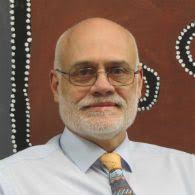
Professor Richard Hays
Professor of Medical Education
Rural Clinical School, School of Medicine, Faculty of Health, University of Tasmania
Professor of Remote Medicine and Health
Mt Isa Centre for Rural and Remote Health, James Cook University
Highlight of RHVP 2018:
Academic Plenary: Globalisation and Artificial Intelligence: Impact on Curriculum Development
Higher education has been radically transformed as a consequence of globalisation and emergence of artificial intelligence technology. One example is the removal of boundaries of space and time. Policy makers and curriculum developers need to rethink the purpose of education and support mechanism for the learners to order to produce synergy and collaboration among countries, communities and individuals. Some of the issues in curriculum development include QA in dispersed sites, serving the needs and demands of many different markets as well as meeting the learning preferences of future students. Professor Richard Hays shared his thoughts and insights on curriculum development driven by value creation and efficiency enhancement, given the opportunities offered by globalisation and AI technology.
Click the following link to enjoy the talk: https://www.youtube.com/watch?v=HsR5SnRlWrw
Workshop on Research and Scholarship in Health Professions Education
Research and scholarship are among the roles of a teacher. To excel in these areas, one is required to engage in continual professional reflection and renewal, including active participation and interaction with the health professions education community through conferences and publications. In this workshop, the participants mapped out the research and scholarship activities and aligned them with the other functions of academics.
Objectives
1. Define research and scholarship in the context of health professions education.
2. Align individual plan for research and scholarship activities to the roles of teachers.
Workshop on Assessment in Health Professions Education (Intermediate Level)
Assessment is an integral component of a curriculum. It is the process of making a judgment on whether the learning outcomes are achieved through a systematic collection, review and use of information. The topics covered in 1-day workshop include identifying the appropriate assessment tools, developing the assessment blueprint, standard setting and assessment psychometrics.
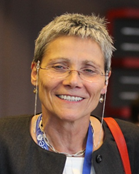
Professor Trudie E. Roberts
Director
Leeds Institute of Medical Education
Highlight of RHVP 2017:
Academic Plenary: Professional Integrity: Challenges and consequences.
The crucial issue of Professional Integrity for Health Professionals was discussed in this plenary. It covers challenges and consequences in healthcare and during tertiary education. The issue of student cheating and its causes has been focused on with areas for reflection from student, faculty and institutional perspectives.
Workshop on Assessing Professionalism in Health Professions Education
Professionalism is an important aspect of training health professionals, given their roles, responsibility and accountability in patient care and patient safety.
Professionalism is also an essential graduate outcome of health professions education as stipulated by accreditation and professional bodies. Valid and reliable assessment programmes are essential and should include professionalism. The scope and tools for assessing professionalism with a contextual approach was covered in this half-day workshop.
Objectives
• Discuss the scope of assessment of professionalism (definition, professional identity, behaviour and attitude)
• Discuss the tools for assessing professionalism, their strengths and weaknesses , as well as validity, reliability, feasibility and acceptability
Other activities:
IMU – MBBS Curriculum Review, Advisory Clinic session with Schools and Centres
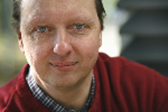
Professor Lambert Schuwirth
Strategic Professor in Medical Education
Flinders University
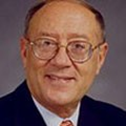
Professor Joseph S. Gonnella
Distinguished Professor & Dean Emeritus & Director
Department of Medicine
Philadelphia University and Thomas Jefferson University
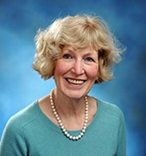
Professor Karen V. MannProfessor Emeritus
Division of Medical Education
Dalhousie University
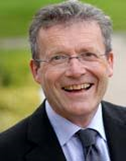
Professor Edward Peile
Emeritus Professor of Medical Education
University of Warwick
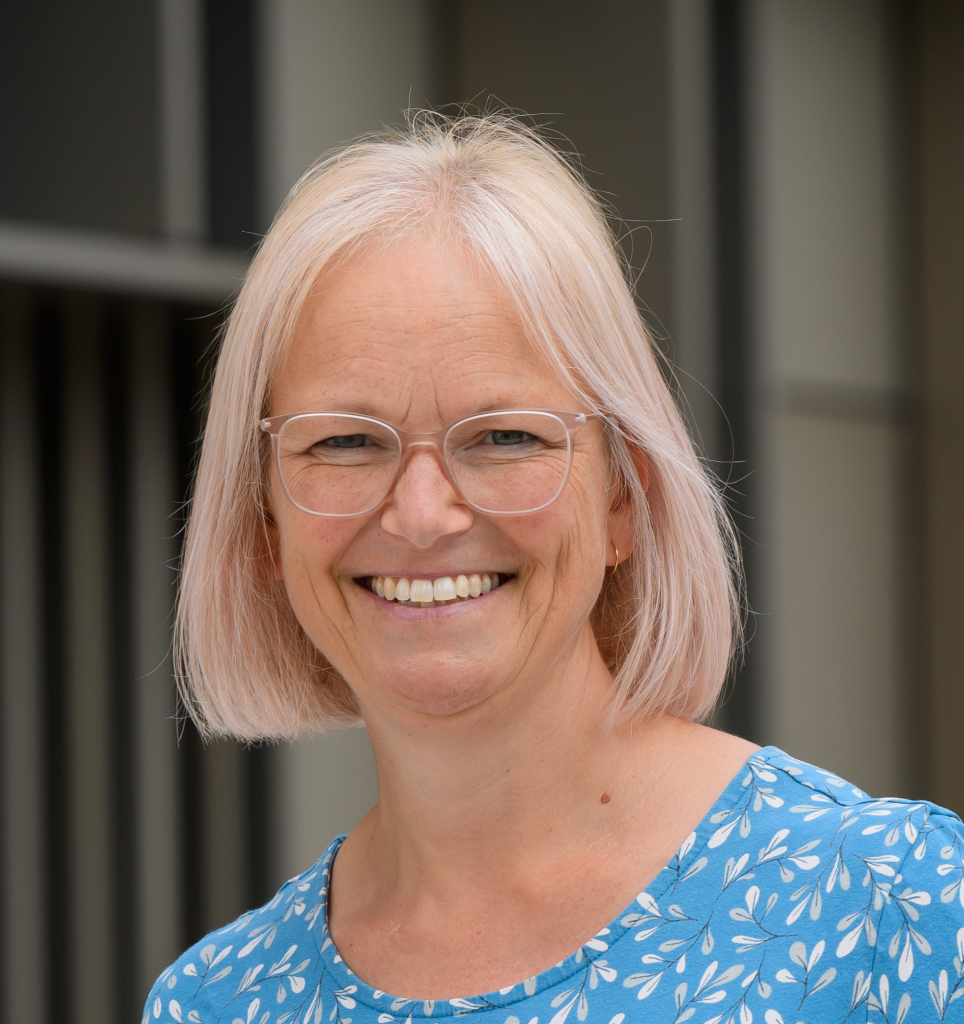
Professor Kate Owen is a General Practitioner by background and is now a full-time specialist medical educator and Director of Medical Studies at Warwick Medical School. Her interests are in co-production with students and patients, patient safety, and compassion. She is Co-Chair of the AMEE Aspire Student Engagement Group and Chair of the Midlands Medical Education Group. Her research interests have included careers in general practice and student experience. She is currently PI for a large project on compassion training for medical students in conjunction with Monash University.
Highlights :
- OSCE STATION WRITING WORKSHOP
Date: 16th January 2024 (Tuesday)
Time: 08:30 am - 01:30 pm
Mode: Face-to-Face
Venue: ICE Training Centre (2.09), Level 2, Bukit Jalil Campus
- Effective Clinical Educator Workshop
Date: 17th January 2024 (Wednesday)
Time: 09:00 am - 04:30 pm
Mode: Face-to-Face
Venue: ICE Training Centre (2.09), Level 2, Bukit Jalil Campus
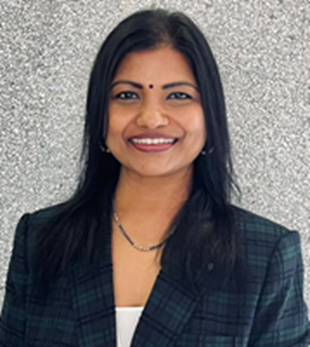
Prof Veena Singaram is an Associate Professor in Health Professions Education and Academic Leader of Research and Higher Degrees in the School of Clinical Medicine at the University of KwaZulu-Natal in South Africa. She has a doctorate in health professions education (HPE) from Maastricht University in the Netherlands and a fellowship from the Sub-Saharan African Foundation for Advancement in Medical Education Research (FAIMER). She is the Kwa-Zulu Natal (KZN) chair of the Southern African Association of Health Educationalists (SAAHE).
She is an executive member of the national Work-based Assessments (WBAs) and Entrustable Professional Activities (EPAs) committees in South Africa. She has published and presented widely in HPE and has graduated several Masters and Doctoral students. She was awarded several research grants and is a member of the editorial board of BMC Medical Education. The UKZN School of Clinical Medicine awarded her the REACHT Academic Award (2021) and the Technology Innovation Teaching Award (2022).
Prof Singaram was also awarded the Distinguished Educator Award from the Southern African Association of Health Professions Educationalists (2022) for her contribution to medical education research, scholarship, and leadership nationally and internationally. She has also been selected to become a Karolinska Institutet’s Prize for Research in Medical Education Fellow for 2023.
Her scholarly interests include; developing students’ potentialities, technology-enhanced learning, formative assessment feedback, and collaborative learning environments within a transformative learning paradigm.
Highlights :
- Formative Assessment and Feedback in Clinical Setting
Date: 02nd June 2023 (Friday)
Time: 09:00 am - 12:00 pm
Mode: Hybrid
Venue: ICE Training Centre, Level 2, IMU Bukit Jalil Campus
Platform: Zoom
Workshop Overview:-
Formative assessment and feedback promote and enhance learning and performance in clinical settings. Feedback is a core component of formative assessment and is a powerful tool to inform trainees of their progress at a particular point in time. However formative assessment and feedback are often neglected, avoided or rejected.
This interactive workshop explores practical strategies and tools for effectively utilising formative assessment and feedback to optimise learning outcomes and enhance our diverse students’ potentialities, mindsets, and competencies using a transformative learning paradigm.
Objectives and Expected Outcomes:-
- Understand the concept and importance of formative assessment and feedback in the clinical setting.
- Apply best practices to foster an effective feedback culture to enhance feedback-seeking and utility.
- Enhance skills for constructive bi-directional feedback that promotes a growth mindset.
- Encourage participants to reflect on their own formative feedback practices and identify areas for improvement.
- Mobile Technologies to Support Workplace Based Assessment for Entrustment Decisions
Date: 02nd June 2023 (Friday)
Time: 03:30 pm - 04:30 pm
Mode: Hybrid
Venue: Senate Room, Level 2, IMU Bukit Jalil Campus
Platform: Zoom
Workshop Overview:-
The disruptions of the COVID-19 crisis have underlined the need for more digital tools to support educational continuity and assessment in clinical training environments.
Digital tools have the potential to create psychologically safe formative feedback cycles that remove the fear of failure and empower healthcare trainees to learn and improve faster. These tools may also mitigate the negative impact of power differentials and hierarchy in clinical training environments, which is essential to foster a constructive feedback culture that enables trainees to develop into self-regulated lifelong learners with a growth mindset. This presentation explores the use of mobile technology to optimise feedback and feedforward in workplace-based assessment for entrustment decisions.
The use of design thinking and transformative learning processes together with the challenges of developing mobile apps will also be discussed.
Professor Dr Stewart Mennin, has been contributing to innovation in health professions education for more than 35 years. He is Principal of Mennin Consulting & Associates, Inc., Professor Emeritus of Cell Biology and Physiology, and former Assistant Dean for Educational Development and Research at the University of New Mexico School of Medicine, Albuquerque, New Mexico, USA.
He has developed a program on leadership in difficult times which he runs for various organizations. Notably, he has run regular courses for the Association for Medical Education (AMEE) and the World Health Organisation (WHO).
Highlights :
- Online Webinar on The Essential Nature of Uncertainty, Complexity & Wicked Issues in Health Professions Education and Practice
Date: 25th November 2020 (Wednesday)
Platform: Zoom@7:00pm-9:30pm
- Workshop: Leadership: The future of the health professions workforce
30 November 2020, Module 1: Lead at the Edge of Uncertainty
7 December 2020, Module 2: Work Better Together
14 December 2020,Module 3: Find the Fix That Fits
21 December 2020, Module 4: Make the Good Better
Platform: Zoom
Professor Richard Hays, Associate Head of the University’s Division of Medicine, was recently bestowed an Honorary Doctorate of Medicine from the International Medical University in Malaysia (IMU).
Professor Hays is a rural medical generalist and he also carries qualifications in educational psychology and medical education and has had roles in the development of medical education programs, including new medical schools in Australia, UK, Ireland, Canada and South-East Asia.
He has also participated in international medical education quality assurance reviews in Australia, New Zealand, the Western Pacific region, Asia, Europe and the UK. His research includes curriculum and assessment practices that deliver particular workforce outcomes, with a strong social accountability focus, overlapping strongly with rural health service delivery and program evaluation interests.
Professor Hays has been a visiting academic at the IMU since 2013, where his contributions have seen him become a member of the Professional Education Advisory Committee (PEAC). He is also actively involved in the review of programmes and its quality of delivery.
Highlights from the visit:
- Workshop on Academic Writing for all PGHPE students
Date: 28th Feb 2020 (Friday)
Venue: ICE Training Centre @9:00am-12:30pm
Synopsis of the session
Research and scholarship are among the roles of a teacher. To excel in these areas, one is required to engage in continual professional reflection and renewal, including active participation and interaction with the health professions education community through conferences and publications. In this workshop, the participants mapped out the research and scholarship activities and aligned them with the other functions of academics.
Objectives of this workshop: -
- To demonstrate understanding of writing as a series of tasks, including finding, evaluating, analysing, and synthesizing appropriate sources, and as a process that involves composing, editing, and revising.
- To demonstrate critical reading and analytical skills, including understanding an argument's major assertions and assumptions, and how to evaluate its supporting evidence.
- To demonstrate research skills, integrate your own ideas with those of others, and apply the conventions of attribution and citation correctly.
- To use a Standard Written English and revise and edit your own writing for appropriateness.
- To demonstrate an understanding of the connection between writing and thinking and use writing and reading for inquiry, learning, thinking, and communicating in an academic setting.
Professor Ming-Jung Ho, is a Professor in the Department of Family Medicine, Georgetown University School of Medicine, and the Associate Director for the Center for Innovation and Leadership in Education (CENTILE), Georgetown University Medical Center (GUMC). She is also the Director of GUMC Teaching Academy in the Health Sciences and Director of Educational Research, MedStar Health. Her research interest lies in the application of anthropology to medical education. Her research projects on the theme of cross-cultural professionalism have garnered awards from the Association for Medical Education in Europe, the Taiwan Association of Medical Education, and the National Science Council of Taiwan.
Highlights from the visit:
- Workshop On Implementation Of Professionalism In Health Professions Programmes on 07 January 2020 (Tuesday) at ICE Training Room @8.30am to 5.00pm.
Synopsis of the session
Professionalism is an important aspect of training of health professionals, given their roles, responsibility and accountability in patient care and patient safety. Being one of the graduate outcomes of health professions education as stipulated by accreditation and professional bodies, it is essential that it is addressed and assessed appropriately using a variety of teaching and learning activities and assessment tools in the curriculum. The one-day workshop will cover curriculum design and assessment of professionalism based on a framework developed for health professions programmes.
The aim of this workshop is to design the curriculum to incorporate professionalism and assess the professionalism.
- Workshop On Qualitative Research For Health Professions Education on 08 January 2020 (Wednesday) at ICE Training Room @8.30am to 1.00pm.
Qualitative research has become increasingly prominent in health professions education in recent years. Qualitative approaches are used to study social and human phenomena in their natural settings through exploration of individuals ‘underlying reasons, opinions and motivations.
In this workshop, we will consider the nature of qualitative research questions, discuss common methodologies, describe data collection and analysis methods, and define the principles of rigour
The aim is to provide both an introduction to participants who are new to this research paradigm and the workshop will also be a resource for more experienced participants.
The both workshops are opened for an internal & external member. Kindly register via following links to book your seats.
Prof Dr Neil Osheroff, received his PhD in Biochemistry and Molecular Biology from Northwestern University and was a Helen Hay Whitney Foundation Fellow at the Stanford University School of Medicine. He currently is Professor of Biochemistry and Medicine at the Vanderbilt University School of Medicine and holds the John G. Coniglio Chair in Biochemistry.
Prof Dr. Osheroff directs a research laboratory that has made seminal contributions to our understanding of how enzymes known as topoisomerases function, regulate the topological state of DNA, and serve as targets for a number of widely prescribed anticancer and antibacterial drugs.
Prof Dr. Osheroff has been a course director in the Vanderbilt University School of Medicine since 1990 and was one of four faculty members tasked with developing and implementing the pre-clerkship phase of the medical curriculum as part of a major revision in 2013. He currently co-leads the pre-clerkship phase and chairs the phase’s teaching team. He also directs the School of Medicine Academy for Excellence in Education and chairs the Master Science Teacher group. Internationally,
Prof Dr. Osheroff is a Past-President of the Association of Biochemistry Educators and sits on the Steering Committee of the Asia Pacific Biomedical Science Educators Association. He served as the Treasurer of the International Association of Medical Science Educators from 2016-2019 and as of January 1, 2020, serves as the President of the Association and also has received awards for mentoring, teaching, curricular design, educational leadership and service, and promoting diversity and inclusion. He also has been inducted as a Fellow of the American Association for the Advancement of Science. He has published over 250 papers and has presented more than 300 scientific and educational talks in 32 different countries.
Highlights from the visit:
- Academic Plenary Talk- Integrating Foundational and Clinical Sciences Throughout the Medical Curriculum on 13th January 2020 (Monday)- Senata Room, Level 2, IMU, BJ
This talk will discuss the importance of curricular integration, the cognitive science behind integration, and the successes and unique challenges that accompany curricular integration in the pre-clerkship and clinical phases of health professional education. It will also discuss the effects of curricular integration on the career paths of science educators and how these individuals play an increasing valuable role in modern health professional education.
Prof Richard Fuller is a Consultant Geriatrician/Stroke Physician and Vice-Dean of the School of Medicine at the University of Liverpool.
He is responsible for directing the MBChB degree programme, generating exciting new initiatives in curriculum design, mobile technology, Assessment and personalised learning.
His main research interests focus on assessment, and he leads the Institute’s Assessment Research Group. His current research focuses on the ‘personalisation’ of assessment, to support individual learner journeys. This is underpinned by work from the Group focusing on the application of intelligent assessment design in campus and workplace based assessment formats, assessor behaviours, mobile technology delivered assessment and the impact of sequential testing methodologies.
He publishes and speaks regularly at leading international medical education conferences and is a faculty member at a number of leading global assessment courses. He holds a number of national/UK advisory roles, including acting as an assessment expert for the General Medical Council - and undertakes a range of advisory and developmental work in relation to curriculum, senior faculty development and assessment for a number of international institutions.
Prof Richard Fuller has been a regular visitor to IMU to work on collaborative projects in research, teaching and program development.
Highlights from the visit:
Workshop on designing Objective Structure Clinical Examination (OSCE) Stations on Wednesday, 20th November 2019
Venue: Seminar Room 4 (1.10)
Time: 8:30am-5:00pm
Synopsis of the session
OSCE is used widely for assessment of clinical skills in a simulated environment that is “standardised” for all students. A carefully designed OSCE station allows measure of students’ clinical competencies at the “shows how” level. However, the design of an OSCE station and its marking checklist, as well as examiners’ skills and expectations could contribute to inconsistencies and the lack of objectivity in clinical competency assessment of students.
In this workshop, the participants will learn to design OSCE stations and prepare the marking checklists to assess the clinical competencies at the expected level. Workshop participants will also evaluate the validity evidence of OSCE by examining the psychometric properties of OSCE scores.
Objectives of this workshop: -
- To design OSCE stations to assess the desired clinical Competencies.
- To prepare OSCE marking checklist to assess the desired clinical competencies
- To carry out psychometric analysis on OSCE performance
Teaching & Learning Activities for School of Medicine: -
- WBAs in Practise Observations in Contextual Settings HTJ Seremban & Primary care clinic settings.
- WBA Workshop IMU faculty/ MOH Staff/Senior Nurses/ Honorary Lectures.
- Plenary with Students Current MBBS/ IMU Alumni/ HOs Students Professionalism Assessment Challenges
- Discussion on Faculty Discussion on Research Proposals
- Consolidation of Consultancy and Collaborative Initiatives
Prof Ray Peterson, is the Associate Professor Education and Innovation, University of Adelaide since 2011.
Prof Peterson has a BSc(Hons) and DipEd from Flinders University, and PG DipScEd, MAppSc and PhD from Curtin University. He was the Director of the MBBS Programme and Head of the Discipline of Medical Education at the University of Queensland. As Director of the MBBS Programme, he has overall operational responsibility and quality assurance for the delivery of all four years of the Graduate Medical Programme. Part of his responsibility is to provide ongoing educational review and improvements in the design, delivery and assessment of the programme. He was also Chair of the MBBS Curriculum Committee and Head of Assessment.
As Head of Discipline of Medical Education, Prof Peterson is responsible for the scholarship of teaching, learning and assessment, and projects, which lead to better quality outcomes in program delivery. He has broad-ranging interests in teaching and learning and is supervising Ph.D. students in medical, dental, health and physiotherapy education.
Since 2008, Prof Peterson has been a regular visitor to IMU to work on collaborative projects in research, teaching and program development.
Teaching & Learning Activities
Plenary with Postgraduate in Health Professions Education Programmes: Current Updates in Small Group Teaching
Faculty Development Activities
- ICE Writing Retreat
- Research Advisory Clinic
Associate Dean: Learning & Teaching, School of Medicine, University of Wollongong, Australia
MBBS; PHD; MASSESS & EVAL; FRACGP
Ian Wilson graduated in medicine from the University of Adelaide and then became a general practitioner. He has practiced in the armed services, inner city, rural and suburban practice. During this time Ian became very interested in medical education and spent time with The Royal Australian College of General Practitioners (RACGP) training programs, initially as a medical educator and then as State Director for South Au. While Ian’s research initially focussed on primary care mental health, his more recent research has focussed on medical education.
His current research interests are student selection and student development. He has had three Australian Research Council (ARC) research grants and a number of other competitive research grants. Ian’s educational interests are in curriculum development, quality assessment and small group teaching.
Highlights from the visit:
- Plenary on Digital Professionalism
Synopsis of the session
This talk explored the concepts of digital professionalism and their place in contemporary Health Professions Education. Prof Ian Wilson described the risks and fears surrounding the use of digital media and whether it is a threat to professionalism. He described the threat and issues using a few case scenarios and discuss the implication of digital media towards the professionalism among health care professionals.
Please click this link to the full video of the plenary.
- Health Professions Education Research Clinic
This clinic provided the opportunity for the participants to discuss either the proposal for the research or the progress of the research. Prof Ian provided a brief introduction to the current trends of educational research and areas that can be further explored. He also explained the potential research area as well as research collaboration.
Teaching Activities in Health Professions Education
- Postgraduate Certificate in Health Professions Education
- Module 4: Work Based Learning in Health Professions Education
- How to convert teaching opportunities to learning opportunities in the workplace
- How to be a gatekeeper to student's progression; linking outcomes to assessment
- Module 4: Work Based Learning in Health Professions Education
- Postgraduate Diploma in Health Professions Education
- Module 8b: Leadership and Professionalism in Health Professions Education
- Understanding System of Education: What to Expect of or for Organization
- Module 8b: Leadership and Professionalism in Health Professions Education
Highlights from the visit:
Plenary on Publishing in Medical Education: Common pitfalls and how to avoid them
Synopsis of the session
The pressure for medical educators to publish has never been greater, especially in publications with a global audience. Publishing is always competitive and there are additional barriers for authors who are not native speakers of English, the common language of academic publishing. This lecture will outline the pitfalls of publishing in medical education, give an insider view of the peer review process and introduce strategies to help authors become more effective publishers of their work. The presenters will draw on their extensive experience of supporting new and early career researchers to publish and their roles as peer reviewers and editors within the academic community.
Research Writing for Publication Workshop
The workshop provided participants with an opportunity to develop their skills and knowledge about research writing for publication. Participants will have identified a writing project to focus on throughout the two days. They were guided by Rebecca O’Rourke and Helen Bradbury, from the Leeds Institute of Medical Education, University of Leeds, through a series of activities designed to improve their writing and editing skills. Rebecca and Helen have worked together for many years to support academic writing development and research writing for publication with postgraduate clinical education researchers at Leeds.
The workshop conducted for two days with the following aim:
- Explain and demystify the processes involved in writing for publication
- Emphasize the importance of decision making in relation to choosing target journals, understanding and following their requirements
- Introduce strategies for developing good writing habits
- Develop insight into the peer-reviewing process
- Develop resilience and confidence in relation to submission and resubmission of writing for publication
- Explore the particular challenges for non-native users of English of writing and publishing in English.
Synopsis:
The speaker, first, introduce trends in medical professionalism in general. He then reviews how culture influence medical education in general, followed by describing how culture matters in medical professionalism by introducing his recent research on medical professionalism and Bushido, the traditional Japanese code of ethics. Finally, he proposed how we, Asian-Pacific medical educators including you, Malaysians, should teach and assess medical professionalism in your own context.

